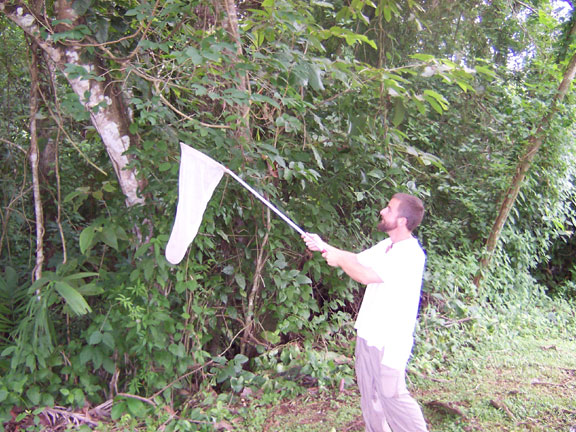the future of the smithsonian institution: the grand challenges
The Smithsonian’s new strategic plan identifies four grand challenges that call for the Smithsonian to broaden access and reach new audiences. These four topics, along with our continued dedication to revitalizing education, will define the work at the Smithsonian as we begin a new era. It’s an exciting time to be at the Smithsonian, and an exciting time to be an Affiliate.
On Monday, June 14, 2010, Smithsonian and Affiliate staff will come together to explore the Grand Challenges and brainstorm potential collaborative opportunities. The session, Smithsonian’s New Grand Challenges Offer Grand Opportunities for Affiliates, has something for everyone. Whether you’re looking to learn more about our strategic plan or would like to offer your expertise on one of these topics, we’ve included Smithsonian staff working on some of the most interesting projects at the Institution for you to find inspiration.
Here’s a peek at each roundtable and the Smithsonian staff you’ll meet:
Roundtable 1: Unlocking the Mysteries of the Universe
Leading in the quest to unlock the fundamental secrets of the cosmos, the Smithsonian will delve into cosmic mysteries through exploration of our own solar system, meteorites, the Earth’s geological past and present, and the paleontological record of our planet. What does the history of the exploration of the cosmos say about us?
Margaret Weitekamp, Curator, National Air and Space Museum
Erika Reinfeld, Education Specialist, Smithsonian Astrophysical Observatory
Tim McCoy, Chair, Department of Mineral Sciences, National Museum of Natural History

2004 Affiliations Visiting Professional from the Pinhead Institute
Roundtable 2: Understanding & Sustaining a Biodiverse Planet
The Smithsonian’s hundreds of researchers across our scientific museums and centers will work with our collections to significantly advance our knowledge and understanding of life on Earth, respond to the growing threat of environmental change, and sustain human well-being. How will your organization get involved?
Mark Haddon, Director of Education, Smithsonian Environmental Research Center
Nancy Knowlton, Sant Chair for Marine Sciences, National Museum of Natural History

Opening of the Museo del Canal Interoceanico de Panama's exhibition Panamanian Passages at the Smithsonian.
Roundtable 3: Valuing World Cultures
Through our research, collections, exhibitions, and outreach, the Smithsonian will present the diversity of world cultures with accuracy, insight, and reverence. Discuss how you can help promote greater understanding of, respect for, and meaningful engagement among the world’s peoples and cultures.
John Homiak, Director, National Anthropology Collections & Archives, National Museum of Natural History
Magdalena Mieri, Director, Program in Latino History and Culture, National Museum of American History

Clash of Empires: The British, French & Indian War, 1754-1763 at the Senator John Heinz History Center.
Roundtable 4: Understanding the American Experience
Understanding how diverse peoples have become one nation; how that nation has been shaped by various communities, individuals, leaders, inventors, heroes, and artists; how it has changed over time; and how our history, art, and culture connect to the world are of vital concern today. Explore what it means to be an American in this roundtable and how the disparate experiences of individual groups strengthen the whole, and help to share our story with people of all nations.
Diana Baird N’Diaye, Cultural Specialist and Curator, Center for Folklife and Cultural Heritage
Susan Nichols, Lunder Education Chair, Smithsonian American Art Museum and the Renwick Gallery

Smithsonian Week in Long Beach, sponsored by the Arts Council of Long Beach.
Roundtable 5: Revitalizing Education
The Smithsonian will serve as a laboratory to create models of innovative education. Discover how you can play a role in educational efforts across the Smithsonian, as we create a pan-Institutional approach for education that leverages resources, strengthens communications, coordinates programming, and rewards inventive thinking and collaboration.
Deborah Stokes, Curator for Education, National Museum of African Art
Stephanie L. Norby, Executive Director, Smithsonian Center for Education and Museum Studies
Tricia Edwards, Education Specialist, National Museum of American History
For more information about the 2010 Smithsonian Affiliations National Conference, click here.



